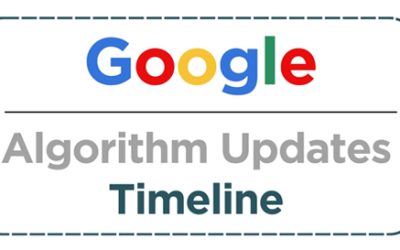Each week has some activity or the other going on in search. Succeeding in healthcare digital marketing requires constant monitoring of the changes. The 2nd full week of February was one full of such algorithmic innovations. Google’s updates were never confirmed by the search giant, but their effects were certainly noticeable.
A Massive Update, but No Confirmation
After a massive Google search ranking update during the week, which the SEO world felt everywhere, but wasn’t confirmed by Google, webmasters felt shaken from their perch. In fact, unless the updates are broad core ones, Google doesn’t confirm it even if the impact is widespread. You could have an update today, just as an update dealing with local search could well have made its way on the 31st of January, as pointed out by Search Engine Roundtable’s Barry Schwartz.
Google also made the confusing announcement that being indexed doesn’t necessarily mean that you are ranked. Google made some changes to its help document for indicating that it does matter to use keywords in descriptions. Local search engine optimizers, though, don’t quite agree when they see the actual results.
Remembering the Featured Snippet Deduplication Update
Earlier, Google had its featured snippet deduplication update, making the featured snippet part of the actual search results. That did shake the conventional concepts of search performance. Google Search Console then featured many new reports and tools dealing with review structured data and review snippets. It was also reported that Google My Business now has the practice of emailing businesses whose reviews are deleted.
Annotations in Google Ads Reports, New Home Page Design Tests
Google Ads reports are now increasingly featuring annotations. Search Engine Roundtable also reports Google testing a new design for its home page. There were some changes brought about in Google Partners as well, which search engine marketers haven’t quite been happy about. And while Google isn’t quite explanatory when it comes to the updates it launches, it did release a video that explains SEO.
Changes from Bing and Microsoft
But changes haven’t been coming from Google alone. Bing brought out its answer to Google’s BERT mechanism – Turing Natural Language Generation (T-NLG). Bing also tested a search feature by which searchers can clarify the question they asked in search. Conditional IF functions were added by Microsoft Advertising.
The fact that so much happened in just a week shows that successful digital marketing for hospitals needs to be sharp, and you must closely observe these changes, and even be prepared for them though they are unpredictable.
Follow Webmaster Guidelines and Do What’s Best for Your Audience
The only solution you can look to is, ensuring your website follows the general webmaster guidelines Google provides. Ensure the content of your web pages and blogs is high quality and informative, optimized particularly for long tail keywords or search phrases. Those are the phrases that are used by people searching seriously and who are closer to conversions. Such content has a greater possibility of coming up in the featured snippets for the concerned keywords.
And while coming up in the featured snippets would keep you out of the regular results, the featured snippet is now part of the regular results and is the most prominent. The unannounced and unconfirmed updates of Google don’t really have a solution for you to bounce back, if you’ve been hit. The key is to have a long-term perspective and do what Google reckons is the best for your audience.
However, you still need to monitor the updates and keep track of how they’re affecting your traffic and rankings. If there are more of ranking and traffic dips you experience with every update, it’s probably time for an overhaul of your site. You need efficient medical website development here.




